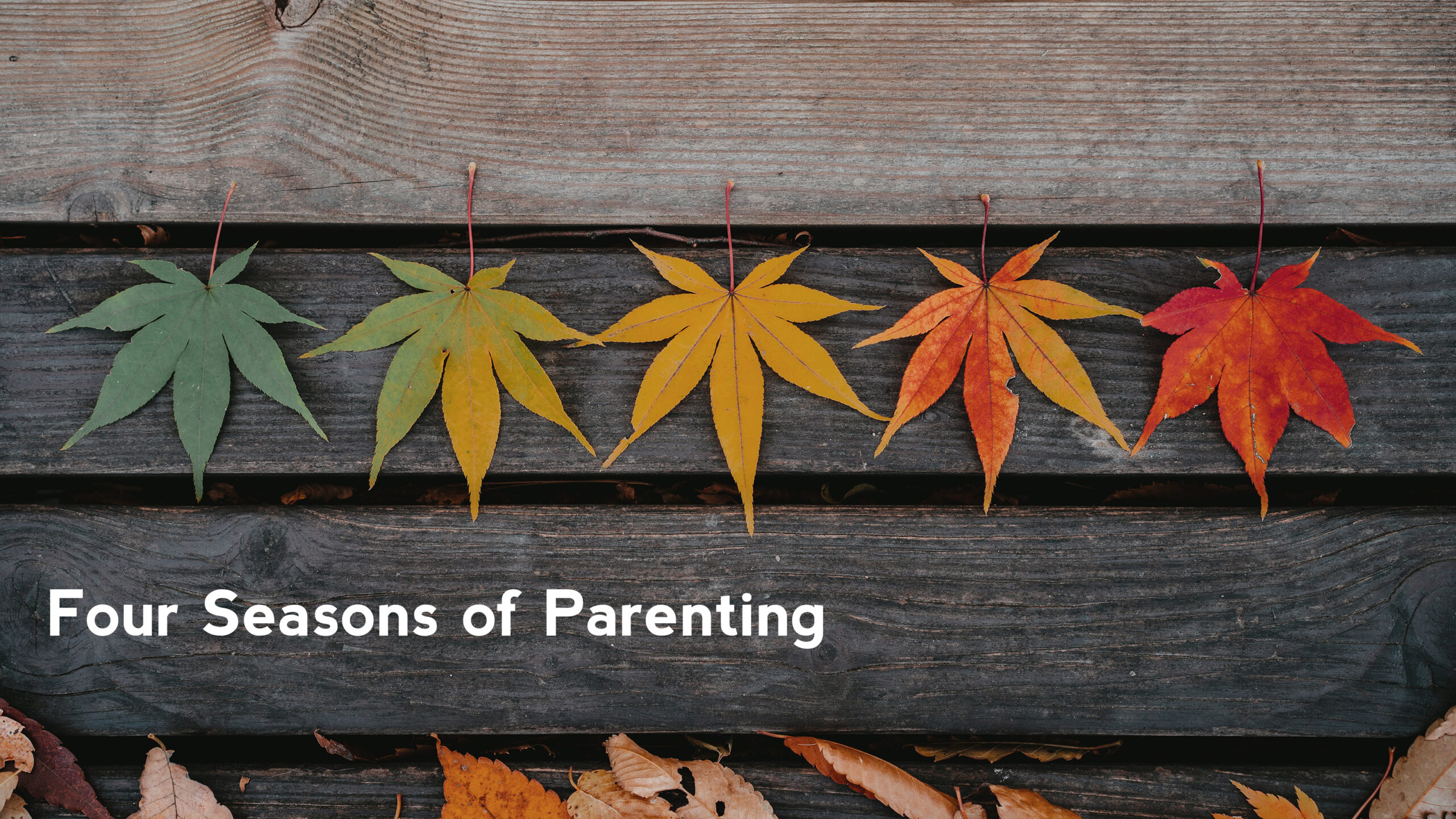It’s hard to look at my kids now compared to where they were when we first relocated to Silicon Valley 10 years ago. My 8-year-old, second-grade Emilee is turning 18 in less than a month and will graduate high school in May. My once 6-year-old Kali has already started taking college courses and is learning to drive. My pre-K Josiah is now a 14-year-old athlete, who can already bench his weight. And then there’s my “Meatball” Elijah, who wasn’t even 2 years old when we landed in San Jose. At least he’s still a kid (kinda). But even as I type this, he’s at the kitchen stove cooking fried rice from scratch… and yes, I asked him to bring me some.
I sat with a dear pastoral friend, Scott Ridout, who once served as the President of Converge Worldwide about raising a family in ministry. The insight he gave me was great for more than just pastoral families, and I wanted to pass on what he shared with me. He described parenting as being in four seasons…
The Caregiver Season
When your child is first born, you parent as their caregiver for the first few years. You do everything for them: feed them, burp them, bathe them. It’s not ‘easy” necessarily, but is generally quite simple. They need our snuggles and compassion, our playtime and interaction. Their eyes follow our every move and it’s adorable… for maybe 2 years.
The Cop Season
You spent the first 2 years teaching them to walk and talk… now they don’t seem to want to be still or quiet! For the next several years, your kids want to test the boundaries of everything. It seems like all you do some days is tell them, “Don’t do that!” It can be exhausting. While the Caregiver stage is defined by compassion, the Cop stage is defined by consistency. Yes, this means discipline, and there are many theories and firm convictions on how to discipline. But the one thing they all have in common is that they require consistency.
The Coach Season
As our children approach 10-12 years old, they require less discipline and more guidance. Like a sports coach, your kids are the “players” and they are the ones now entering this game called “life”. The hardest part of this for many parents is the transition from doing things for them and teaching them to do things for themselves. In this season more than any other, our kids need room to rise and permission to fail. Rather than “punishing” our kids directly, they begin to suffer the consequences of their choices more directly. The Coach stage requires our cooperation for their training and success in life. But like a coach of a team, you still have some leverage. Coaches can bench players, make them stay longer for practice, etc. Likewise, parenting in the Coach stage still exercises a degree of authority over our children.
The Counselor Season
Eventually, if all things go well, we eventually surrender whatever leverage or control we have over our kids as they enter adulthood and the independence that comes with it. If we’ve done the previous three seasons well, we should be able to enjoy our “kids” as peers now… and hopefully, friends. Some disaster withholding, our Counseling years represent the longest season of parenthood. At this point, our kids do not owe us obedience, but will hopefully express honor to us for raising them, and the experience and wisdom we still have to offer them.
My wife, Tiffany has always excelled and thrived as a Caregiver and Cop. The Cop years were exhausting to me! But I’ve found myself loving the season of Coaching our kids. If you’re a parent, what is/was your favorite season of parenting, and why? Share in the comments!
Blessings,
Pastor John




